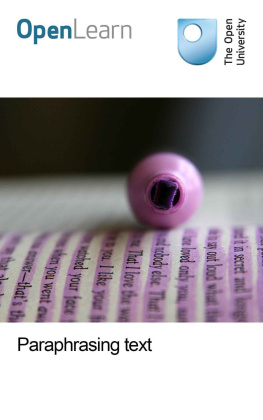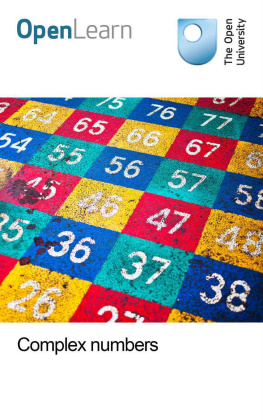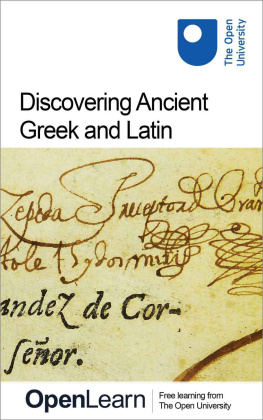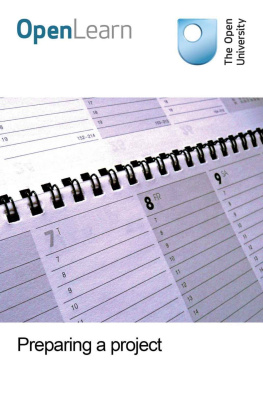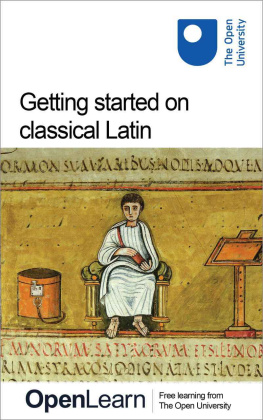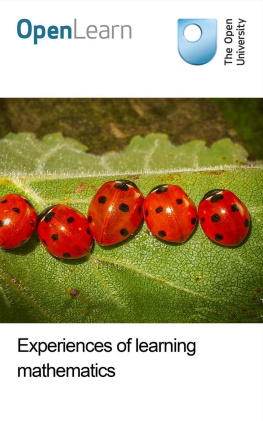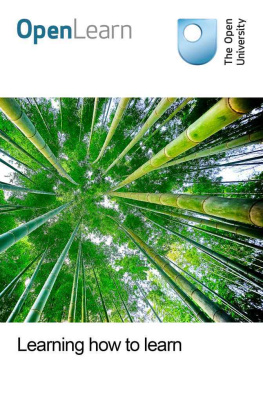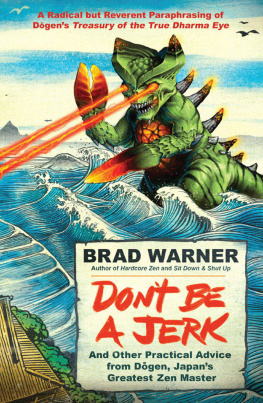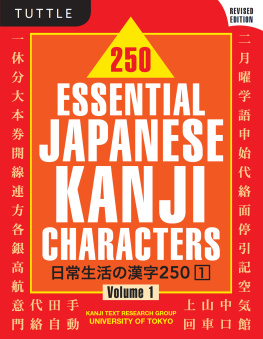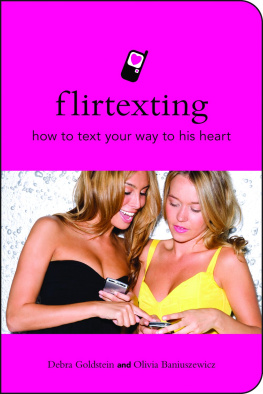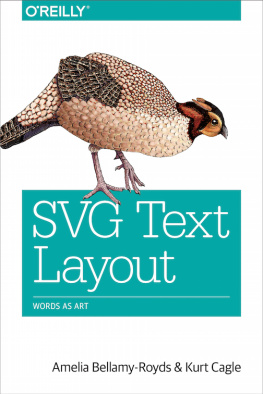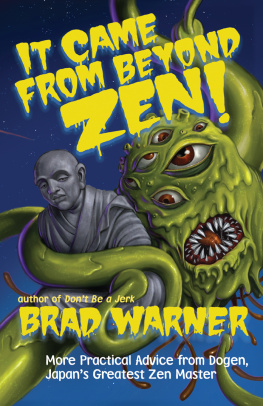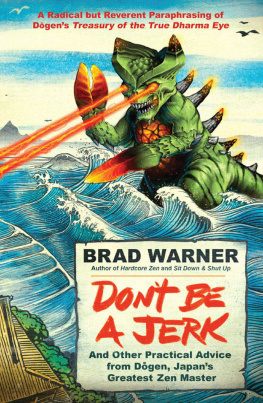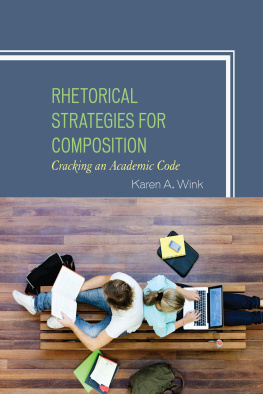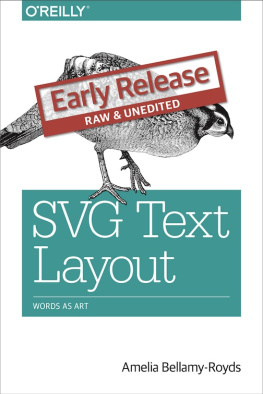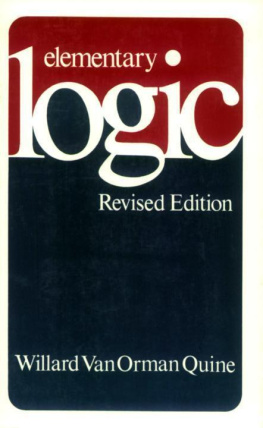University - Paraphrasing text
Here you can read online University - Paraphrasing text full text of the book (entire story) in english for free. Download pdf and epub, get meaning, cover and reviews about this ebook. year: 2016, publisher: The Open University, genre: Children. Description of the work, (preface) as well as reviews are available. Best literature library LitArk.com created for fans of good reading and offers a wide selection of genres:
Romance novel
Science fiction
Adventure
Detective
Science
History
Home and family
Prose
Art
Politics
Computer
Non-fiction
Religion
Business
Children
Humor
Choose a favorite category and find really read worthwhile books. Enjoy immersion in the world of imagination, feel the emotions of the characters or learn something new for yourself, make an fascinating discovery.
- Book:Paraphrasing text
- Author:
- Publisher:The Open University
- Genre:
- Year:2016
- Rating:3 / 5
- Favourites:Add to favourites
- Your mark:
- 60
- 1
- 2
- 3
- 4
- 5
Paraphrasing text: summary, description and annotation
We offer to read an annotation, description, summary or preface (depends on what the author of the book "Paraphrasing text" wrote himself). If you haven't found the necessary information about the book — write in the comments, we will try to find it.
Paraphrasing text — read online for free the complete book (whole text) full work
Below is the text of the book, divided by pages. System saving the place of the last page read, allows you to conveniently read the book "Paraphrasing text" online for free, without having to search again every time where you left off. Put a bookmark, and you can go to the page where you finished reading at any time.
Font size:
Interval:
Bookmark:
About this free course
This free course is an adapted extract from the Open University course L185 English for academic purposes online http://www3.open.ac.uk/study/undergraduate/course/l185.htm.
This version of the content may include video, images and interactive content that may not be optimised for your device.
You can experience this free course as it was originally designed on OpenLearn, the home of free learning from The Open University - http://www.open.edu/openlearn/languages/english-language/paraphrasing-text/content-section-0.
There youll also be able to track your progress via your activity record, which you can use to demonstrate your learning.
Copyright 2016 The Open University
Intellectual property
Unless otherwise stated, this resource is released under the terms of the Creative Commons Licence v4.0 http://creativecommons.org/licenses/by-nc-sa/4.0/deed.en_GB. Within that The Open University interprets this licence in the following way: www.open.edu/openlearn/about-openlearn/frequently-asked-questions-on-openlearn. Copyright and rights falling outside the terms of the Creative Commons Licence are retained or controlled by The Open University. Please read the full text before using any of the content.
We believe the primary barrier to accessing high-quality educational experiences is cost, which is why we aim to publish as much free content as possible under an open licence. If it proves difficult to release content under our preferred Creative Commons licence (e.g. because we cant afford or gain the clearances or find suitable alternatives), we will still release the materials for free under a personal end-user licence.
This is because the learning experience will always be the same high quality offering and that should always be seen as positive even if at times the licensing is different to Creative Commons.
When using the content you must attribute us (The Open University) (the OU) and any identified author in accordance with the terms of the Creative Commons Licence.
The Acknowledgements section is used to list, amongst other things, third party (Proprietary), licensed content which is not subject to Creative Commons licensing. Proprietary content must be used (retained) intact and in context to the content at all times.
The Acknowledgements section is also used to bring to your attention any other Special Restrictions which may apply to the content. For example there may be times when the Creative Commons Non-Commercial Sharealike licence does not apply to any of the content even if owned by us (The Open University). In these instances, unless stated otherwise, the content may be used for personal and non-commercial use.
We have also identified as Proprietary other material included in the content which is not subject to Creative Commons Licence. These are OU logos, trading names and may extend to certain photographic and video images and sound recordings and any other material as may be brought to your attention.
Unauthorised use of any of the content may constitute a breach of the terms and conditions and/or intellectual property laws.
We reserve the right to alter, amend or bring to an end any terms and conditions provided here without notice.
All rights falling outside the terms of the Creative Commons licence are retained or controlled by The Open University.
Head of Intellectual Property, The Open University
978-1-4730-1940-9 (.kdl)
978-1-4730-1172-4 (.epub)
Reading at university usually leads to writing: for example, an essay, notes for a seminar, or ideas for a presentation. This is really a process of turning reading into your own words. The two main ways of doing this are paraphrasing and summarising.
In this course you will practise strategies for paraphrasing sentences.
This OpenLearn course is an adapted extract from the Open University course L185 English for academic purposes online.
After studying this course, you should be able to:
- understand the process of paraphrasing
- practise paraphrasing strategies.
The following activity uses the text A force in human history. Take a moment to read it now.
View document
Much academic study can be seen as a process of turning reading into writing:

Turning reading into your own words is called paraphrasing.
In order to paraphrase a sentence, it is important to recognise the main point of the sentence. Look at the following three sentences and identify the main point in each one. Type your answers into the text box below.
- AIDS has claimed many lives.
- By the year 2001, AIDS had claimed over 21 million lives.
- By the year 2001, AIDS had claimed over 21 million lives, in spite of medical inventions, such as antibiotic therapy and mass vaccination, introduced after World War 2.
Using your mouse, highlight the main point in each of the following sets of three sentences.
Interactive content is not available in this format.
Activity 2
Identifying the part of a sentence you want to paraphrase may be the first step. The second step is to put it in your own words.
In Activity 2, the main part AIDS has claimed many lives was paraphrased as Many people have died of AIDS.
Paraphrase the following sentences by changing the words in any way.
1 HIV has been growing fastest in Europe.
2 The number of new infections in Western Europe doubled to more than 365,000.
3 Many non-governmental organisations (NGOs) also tackle health issues around the world.
4 UNAIDS launched the 3 by 5 initiative.
In this activity you will practise showing your understanding of a word or concept by using a synonym.
Match the meaning of the original word in italics below by selecting the right synonym. When you are working with a text, the synonym you choose will depend on the context. Just looking up words in your dictionary might not work.
The impact
force
effect
shock
of HIV/AIDS on the economies and hence the political stability
balance
tendency
strength
of heavily affected countries is a major cause for international
Font size:
Interval:
Bookmark:
Similar books «Paraphrasing text»
Look at similar books to Paraphrasing text. We have selected literature similar in name and meaning in the hope of providing readers with more options to find new, interesting, not yet read works.
Discussion, reviews of the book Paraphrasing text and just readers' own opinions. Leave your comments, write what you think about the work, its meaning or the main characters. Specify what exactly you liked and what you didn't like, and why you think so.

